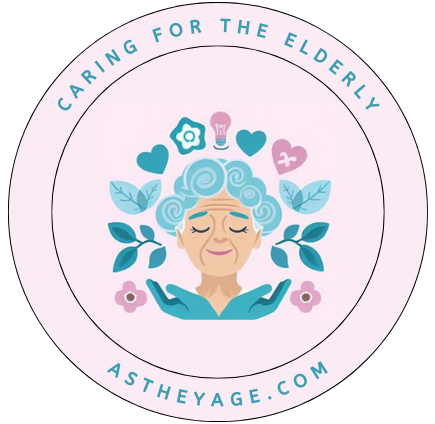
Being a dementia carer is like riding an emotional roller coaster. One day you might feel deep joy from small moments of connection, and the next, you might be overwhelmed by feelings of sadness and loss. It’s important to recognize these emotions and accept them as part of your journey.
As carers we find ourselves experiencing intensified emotions. We’re not just watching someone forget who you are or where home is—we are experiencing it alongside them. This shared journey can lead to a mix of grief, frustration, and love that is uniquely challenging.
It’s not uncommon to feel isolated like we are in this battle alone. Hearing stories from others who have been down the same path can be incredibly validating and supportive. Knowing we are not alone makes a huge difference, both mentally and emotionally.
Long-term caregiving can have significant psychological impacts. Depression, anxiety, and even PTSD can be part of the picture for dementia carers. If these feelings start to interfere with daily life, it might be time to seek professional help or counseling.
Warning signs of emotional fatigue and burnout are key to watch for, like chronic exhaustion, feelings of isolation, hopelessness, anger, or health issues. Such as digestive issues, dizziness, headaches, high blood pressure, and sleeping disorders to name a few. If you see these in yourself, hitting pause and reevaluating your care regimen is super important. Helping yourself will enable you to help your loved one better. As a caregiver, I experienced significant stress, anxiety, a loss of appetite, and unexpected weight loss. Thankfully, with the support of my friends and colleagues, I was able to manage these challenges more effectively.
Building Resilience: Strategies and Coping Mechanisms
Stress is part and parcel of caregiving, but managing it effectively can make a world of difference. Identifying stressors and understanding how they affect you is crucial. Once you know what’s dragging you down, you can work on tackling it head-on.
Support groups can be a lifeline. They offer a space to share experiences and gain insights from those who’ve walked in your shoes. Whether in-per
son or online, these communities provide emotional backing and practical advice.
Self-care isn’t a luxury; it’s a necessity. Developing a routine that includes regular breaks, exercise, healthy eating, and hobbies can keep you grounded. It’s about carving out moments for yourself in the whirlwind of daily caregiving.
Mindfulness practices—like meditation and yoga—are fantastic for keeping stress in check. Even a few minutes a day can help clear your mind and rejuvenate your spirit. Loads of apps and online resources can guide you through simple exercises to find some tranquility amidst chaos.
The Importance of Community Support
Connecting with others who understand your journey can lighten the load in ways you might not expect. There’s power in community—both local and online—that offers real-time support, advice, and friendship when you need it the most.
Tapping into resources from organizations can make a big difference. Many offer respite services, educational workshops, and even financial support to help relieve the burden of caregiving. Exploring these available options is definitely worth the effort.
A strong relationship with healthcare professionals involved in the care of your loved one can also be a great asset. They’re not just there for the patient; they’re your allies too. Discussing concerns and seeking their guidance can lead to more effective caregiving strategies.
Sharing your experiences and challenges with others can lead to learning new solutions and gaining different perspectives. Listening to fellow carers can provide both reassurance and possible strategies, transforming challenges into less daunting tasks.
Preserving Quality of Life: A Holistic Approach
Balancing the responsibilities of caregiving with personal needs means creating a routine that accommodates both. Recognizing your limits and learning when to say no can help maintain balance in daily life. As part of my weekly  routine, I would go powerwalking with my friends after work and on weekends as a social activity, a means of calming my mind, and self-care.
routine, I would go powerwalking with my friends after work and on weekends as a social activity, a means of calming my mind, and self-care.
Finding activities that bring joy and fulfillment matters. Whether it’s a shared hobby with your loved one or an individual pursuit, engagement in enjoyable activities can enhance both your lives. In the beginning, my uncle and I occasionally spent time on the beach or just played catch at home.
Respite care offers much-needed relief. These services are there so carers like you can recharge without sacrificing the quality of care your loved one receives. Exploring these can lift a huge weight off your shoulders.
Keeping a social circle alive outside of caregiving duties is crucial. Joining hobby-based communities or interest groups, whether online or offline, can offer interaction and fulfillment beyond your caregiving role. Maintaining these connections helps to keep a vibrant sense of self.
Embracing Self-Care as a Selfless Choice
 Caring for others is a noble and fulfilling role, but it’s crucial to recognize that prioritizing self-care is not selfish; it’s essential. Throughout my journey of caring for my uncle, I came to understand that my well-being is just as important as his. In fact, by taking care of myself, I can be a more effective caregiver.
Caring for others is a noble and fulfilling role, but it’s crucial to recognize that prioritizing self-care is not selfish; it’s essential. Throughout my journey of caring for my uncle, I came to understand that my well-being is just as important as his. In fact, by taking care of myself, I can be a more effective caregiver.
I discovered the value of seizing every opportunity to relax and recharge. Simple activities like watching my favorite shows, spending time with family, or exercising with friends became vital moments of respite. These breaks, whether physical or mental, allowed me to step back, refresh my mind, and regain my energy.
Engaging in self-care is not only beneficial for us but ultimately enhances our ability to support our loved ones. When we are well-rested and mentally balanced, we can approach caregiving with greater patience, compassion, and resilience. It’s easy to fall into the trap of thinking that every moment must be devoted to those we care for, but neglecting our own needs can lead to burnout, which is detrimental to both the caregiver and the recipient of care.
By prioritizing self-care, we model healthy behaviors and demonstrate that it’s okay to take time for oneself. This not only benefits us but also sets a positive example for others.  Remember, taking a moment for yourself allows you to return to your caregiving role with renewed strength and a clearer mind. So, embrace self-care as an integral part of the caregiving process; it’s a vital step toward ensuring that you can continue to provide the love and support your loved ones deserve.
Remember, taking a moment for yourself allows you to return to your caregiving role with renewed strength and a clearer mind. So, embrace self-care as an integral part of the caregiving process; it’s a vital step toward ensuring that you can continue to provide the love and support your loved ones deserve.
Now it is your turn, I invite you to share your comments, suggestions, questions, or experiences.

